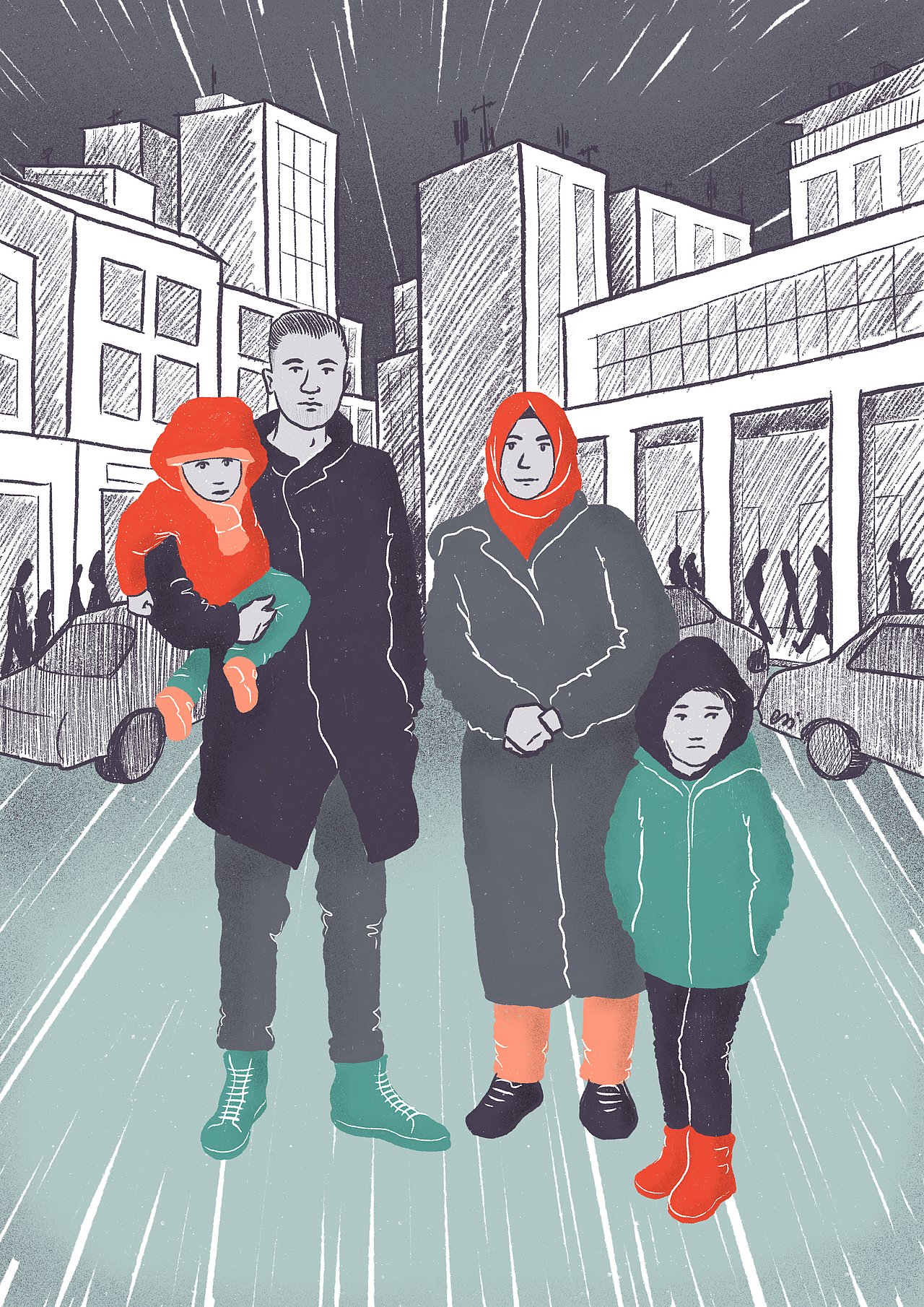
NORTHERN IRAQ
The worst year of life
Hasim and Tahmineh Jafarzadeh: Northern Iraq - Germany - Northern Iraq
It was a warm, sunny autumn day in Berlin when Hasim and Tahmineh Jafarzadeh* arrived in Germany with their two children - the still tiny infant Basima and four-year-old Yassin - on a visa in 2019.
They no longer felt safe in Erbil in northern Iraq and hoped for a better future for themselves and their children in Germany. Initially, they were able to stay with friends. But after they applied for asylum, they were moved to a collective centre in Berlin and then reassigned to Schwerin.
They would have liked to stay in Berlin, close to their friends who had supported them in every way. In Schwerin, they lived under one roof with other refugees. Many different languages were spoken, so no real conversation or exchange was really possible and there was no official support or counselling. The accommodation was dilapidated and filthy. Their isolation at the collective centre plunged Hasim and Tahmineh into depression. Little Yassin kept asking his father the same question: "Why do we have to be in this prison?"
Isolation, Corona, racism
The parents’ depression worsened as a result of encounters with people in the neighbourhood who treated them with rejection and contempt. Finally, restrictions due to the Corona pandemic made their already difficult life in the camp more and more unbearable and reinforced their feelings of isolation and fear. Since they were not entitled to enrol in a German course, Tahmineh taught herself German on YouTube and sometimes tried to use it while shopping. But most of the time she was ignored by the shop assistants. Her impression: “People here don’t care about us at all - or we disturb them.” Once, on her way back to the camp, she met a woman with a dog. Suddenly, the woman let the dog off the leash and it ran towards Tahmineh. She screamed in fear and asked the woman to call the dog back. But the woman did not react. When the dog finally ran away, she turned around again and said “bloody foreigner”. “Words you hear often, you learn quickly. Racist insults are high on that list,” says Tahmineh. Her experience of hate and exclusion heightened her fears. She no longer left the camp without her husband and became more and more withdrawn.
Too exhausted to object
At some point, a letter arrived from the Federal Office for Migration and Refugees. “Your application for asylum has been rejected,” it stated succinctly. By this point, Hasim and Tahmineh no longer had the strength and energy to fight for their application. Being subjected to racism on a daily basis, living in isolation and then rejection of legal residency - all this moved Hasim to sign: “I hereby agree to the voluntary departure of my nuclear family and waive any legal claims to residence.” He would have liked to tell the German authorities that he had spent one of the worst years of his life in Germany. But no one asked him why he was returning to Erbil, Hasim says.
His hopes of at least receiving psychological support in Erbil were quickly dashed. While they were still in Germany, the family had received a travel allowance, and then a “Corona bonus” in Erbil and, six months later, a second instalment of support. In sum total, it was 3,000 Euro. At first Hasim thought he could build up a small business with it. But the money was not even enough to rent a flat over the long term. Finally, he bought a taxi with part of the support. To complete the financing, he had to borrow money. Since the people wanted their money back a few weeks later, he had to sell the taxi again to pay off his debts. Hasim draws a bleak conclusion: “If you don’t have support from your family after you return, you can’t make it on the money from the German programme alone. It’s not enough to start a business. Without my brother, we wouldn't even have a roof over our heads.” Tahmineh adds, “When you are isolated, don’t know the language and are racially insulted - you just want to leave. It feels like deportation - only without being officially forced.”
* The names have been changed by the editors.
